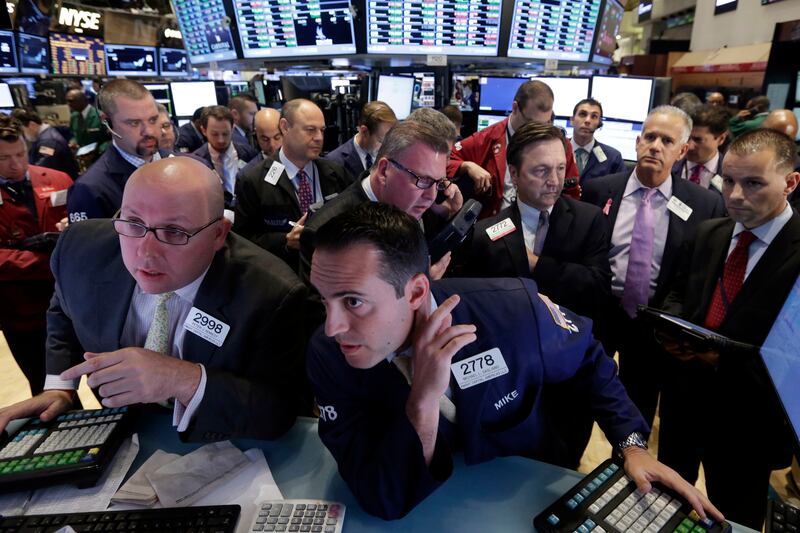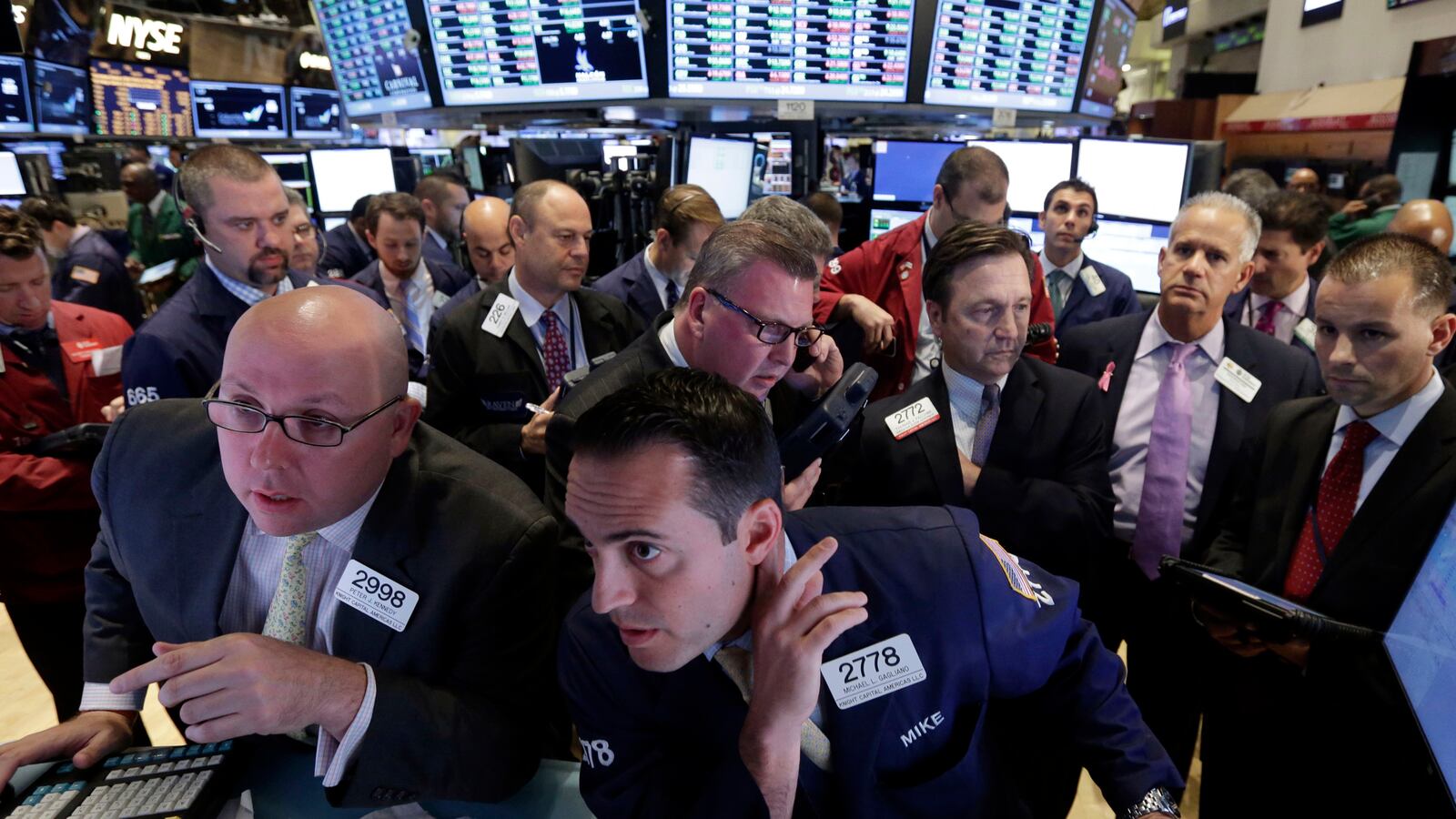The Davos crowd – bankers, finance ministers, central bankers, large-asset managers – is generally not prone to panic. These are people who traffic in incremental change, who wear stiffer upper lips to match their bespoke suits, who avoid hyperbole the way they avoid flying coach.

But as the U.S. government remains shut down for a third week, and as America careens toward the debt ceiling, this normally unflappable crowd is starting to sweat. It’s as if they haven’t been paying attention to the absurd pageant of brinksmanship that has been playing out in Washington over the last few years, and are only now waking up to the horror that one house of Congress – and hence a branch of government – is essentially controlled by a group of people who care not a whit for the prerogatives of global bondholders.
Fidelity Investments, among the largest, most-sober asset managers in the world, said it had sold the short-term government bonds held in its money-market mutual funds that were supposed to mature around the debt ceiling cut-off date. In theory, it sounds like a smart move. Who wants to be caught holding the bag if Republicans really decide not to raise the debt ceiling? And since investors tend to treat money-market funds like cash, it makes sense for funds to maintain maximum flexibility. In practice, though, perhaps it was not a particularly smart move. One way or another, the government will pay the interest and principal on the bonds in time. And should the government actually default on those bonds, the evasive maneuver won’t really count for much. The bonds sold account for only a small percentage of the company’s overall U.S. Treasury bond holdings, which are sprinkled liberally throughout other Fidelity mutual funds. And their value would surely plummet in the event of a default.
Over the weekend, there were two big events in the world of global finance: the annual meetings of the International Monetary Fund and the Institute of International Finance. Each featured panels and events at which very high-profile speakers spoke in near-apocalyptic terms about the situation in Washington.
At the IMF confab, one of the most well-attended sessions was a panel on restructuring sovereign debt. (The subtext was that, instead of sussing out how a restructuring of Argentinian or Malaysian debt might look, the world might have to think about what a restructuring of America’s much larger debt might look like.) On Sunday, IMF Managing Director Christine LaGarde appeared on Meet the Press and warned that casting doubt on the credibility of America’s bond offerings could push the global economy into recession for only the second time since World War II. “If there is that degree of disruption, that lack of certainty, that lack of trust in the U.S. signature, it would mean massive disruption the world over,” she said. Jim Hong Kim, the former Dartmouth president who now helms the World Bank, said the global economy is “days away from a very dangerous moment.”
At the IIF annual meeting, a parade of big-shot bankers – guys whose empires are perched on mountains of private- and public-sector debt – sounded the toxins. The relative calm in the markets simply can’t be trusted. “As you get closer to it, the panic will set in and something will happen,” said Jamie Dimon, chief executive officer of J.P. Morgan Chase. “I don’t personally know when that problem starts.” While Dimon didn’t say the bank had been dumping government bonds, its highly paid employees are busy doing the equivalent of filling sandbags and buying bottled water. Dimon said that the bank is “spending huge amounts of time and money and effort to be prepared.”
Bankers, who generally traffic in hard data and soothing bromides, are instead speaking in sound-bites that could be cribbed from an apocalypse-movie trailer. Here’s Jamie Dimon in the Wall Street Journal: a default “would ripple through the global economy in a way you couldn’t possibly understand.” Anshu Jain, the head of Germany’s giant Deutsche Bank, compared a default to a deadly virus – “a rapidly spreading fatal disease.” One gets the impression that were the bond market open today (it’s closed for Columbus Day) bankers would be quietly trying to dump large quantities of short-term bonds.
Elsewhere, some observers are seeing the potential default as a crucial inflection point – a time when a U.S.-imposed debacle could seriously alter decades of longstanding financial practice and statecraft. Over the weekend, Xinhua, China’s news agency, published a column noting that the debt standoff might finally be the occasion for “building a deAmericanized world.” The shenanigans in D.C., it noted, have “left many nations' tremendous dollar assets in jeopardy and the international community highly agonized.” The bill of particulars included issues relating to international law and intervention in the Middle East. But the real problem is America’s continuing dominance of a financial system in which countries like China purchase tons of U.S. debt and then have to sit by and watch as politicians decide whether the world’s largest economy will meet its financial obligations. The column called for “the introduction of a new international reserve currency that is to be created to replace the dominant U.S. dollar, so that the international community could permanently stay away from the spillover of the intensifying domestic political turmoil in the United States.”




